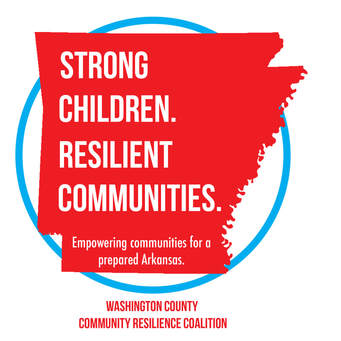Keeping Washington County's Children Safe
During and after disasters, children and their families have unique and specific needs that may not be adequately addressed in emergency planning and response. Quickly returning to a routine can improve a child's recovery and simultaneously allow the family unit to address other issues of recovery. Every day, 69 million children are separated from their families, in child care facilities or schools. Despite this, these child serving institutions are often left out of the preparedness and planning equation.
Washington County is determined to change this through the Children's Community Resilience Coalition.
We Know we have work to do:
- Only 41% of Washington County residents report having an emergency plan that their whole family knows about.
- 37% of Washington County households are familiar with their child's child care/school evacuation and emergency plans.
- 58% of Washington County households do not know where their children would be evacuated to.
- 39% of Washington County households believe help will arrive in under an hour in the event of a disaster.
- 53% of Washington County households believe they will be reunited with their children within several hours; it took an astounding seven months to reunify the last child with her family after Hurricane Katrina.
- Of every $10 spent in federal preparedness grants, less than one penny goes to activities targeting children's safety.
The Resilient Children/Resilient Communities Initiative
Of every $10.00 spent in federal preparedness grants, less than one penny goes to activities targeting children's safety. "Severe gaps in emergency planning, particularly the lack of the inclusion of children's critical needs for protection, safeguarding and support, put communities and families across the United States at risk," says Dr. Irwin Redlener, Director of the National Center for Disaster Preparedness. "As severe weather and other disasters wreak havoc on local communities, we hope that community leaders will benefit from guidance on how to incorporate the unique needs of children into their preparation and response plans."
Over a three-year period, the Resilient Children/Resilient Communities Initiative will develop two pilot programs - one in Washington County, Arkansas and one in Putnam County, New York. Through this partnership, Washington County will build sustainable, child-focused emergency plan, bringing together stakeholders to ensure that our children are safe.
Over a three-year period, the Resilient Children/Resilient Communities Initiative will develop two pilot programs - one in Washington County, Arkansas and one in Putnam County, New York. Through this partnership, Washington County will build sustainable, child-focused emergency plan, bringing together stakeholders to ensure that our children are safe.
Looking to be part of the solution? Everyone has a role to play!
| |||
About the Toolbox
In partnership with community leaders, the Resilient Children/Resilient Communities Initiative analyzed, recommended and implemented procedures, training, and guidance to help build child-focused community resilience to disasters. The RCRC Toolbox is a dynamic collection of resources developed and curated throughout this initiative for the benefit of those working to make our communities and our children more resilient to disasters. This collection of tools and resources should be shared widely with communities nationwide.
To find out more information about the toolbox, you can view a webinar at: https://www.youtube.com/watch?v=w6sxIIoKYCY&feature=youtu.be
To access the toolbox visit: https://www.rcrctoolbox.org/
In partnership with community leaders, the Resilient Children/Resilient Communities Initiative analyzed, recommended and implemented procedures, training, and guidance to help build child-focused community resilience to disasters. The RCRC Toolbox is a dynamic collection of resources developed and curated throughout this initiative for the benefit of those working to make our communities and our children more resilient to disasters. This collection of tools and resources should be shared widely with communities nationwide.
To find out more information about the toolbox, you can view a webinar at: https://www.youtube.com/watch?v=w6sxIIoKYCY&feature=youtu.be
To access the toolbox visit: https://www.rcrctoolbox.org/

